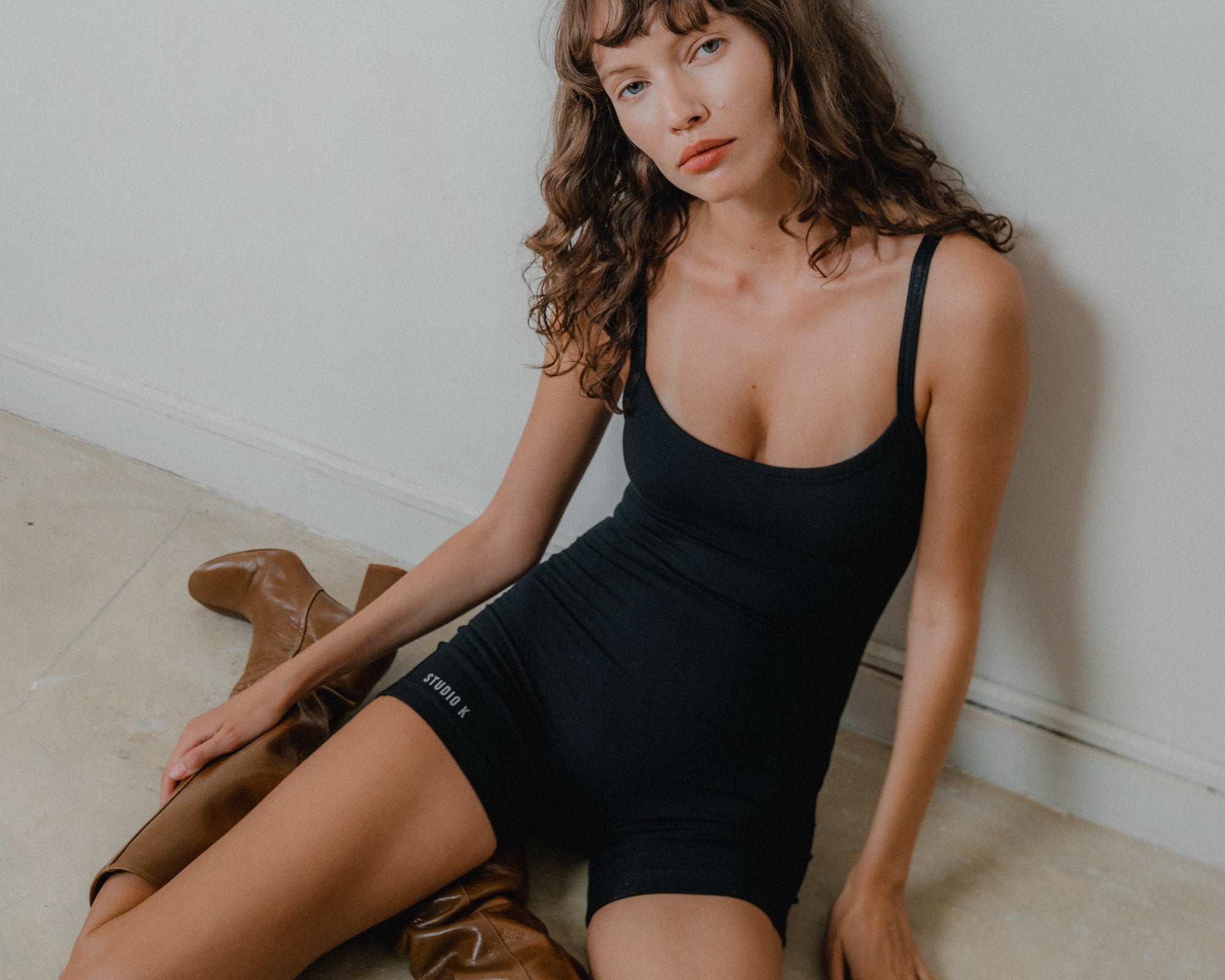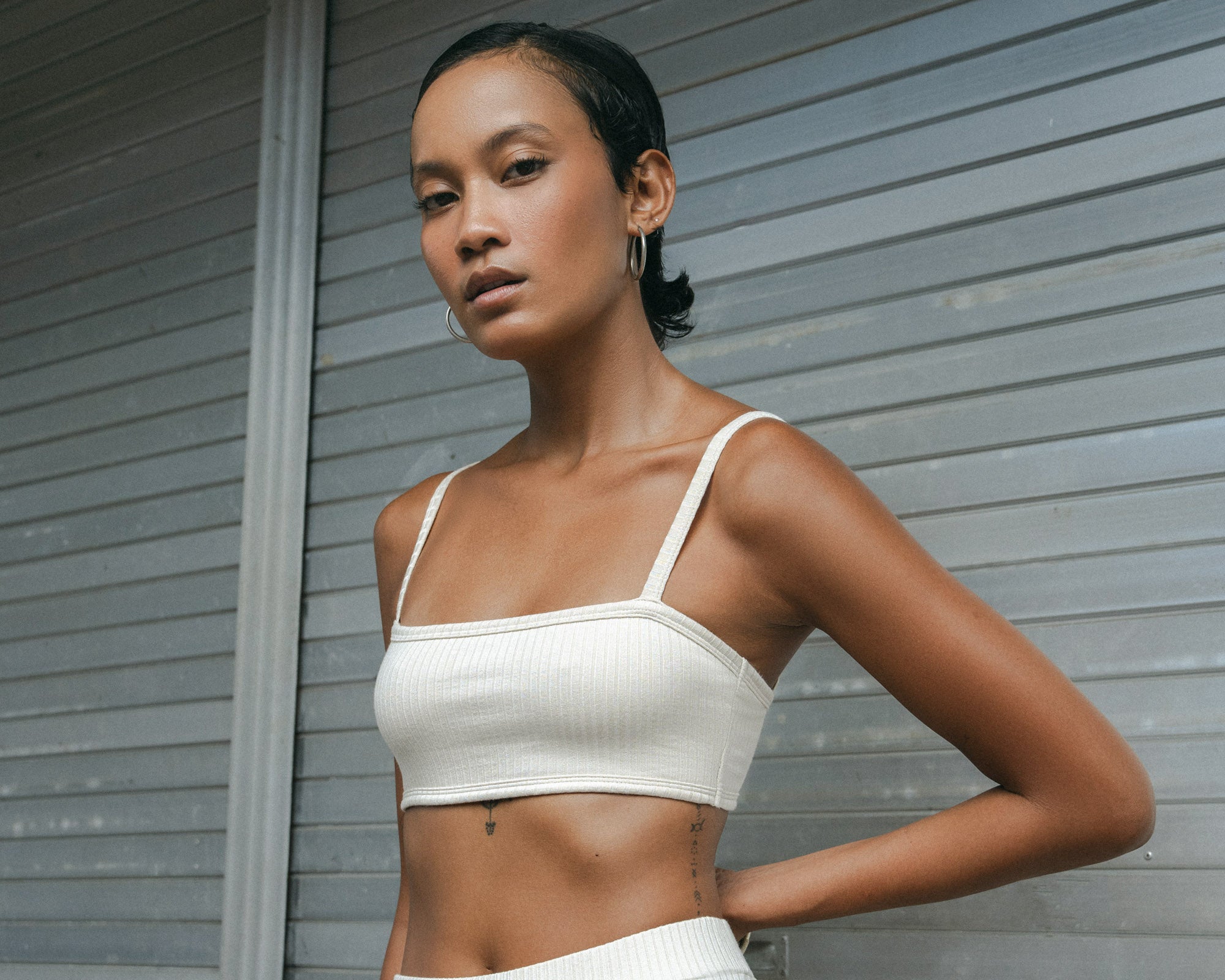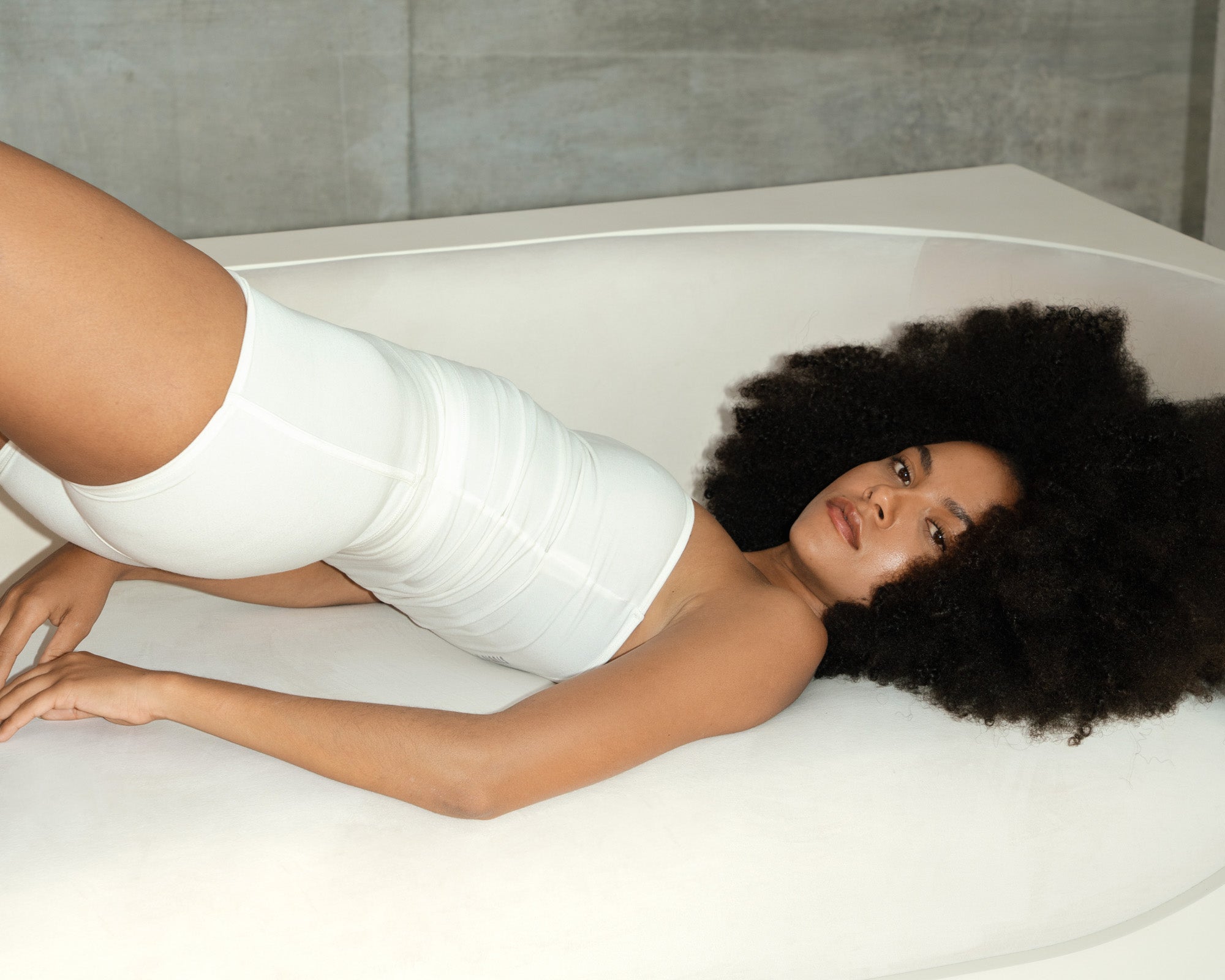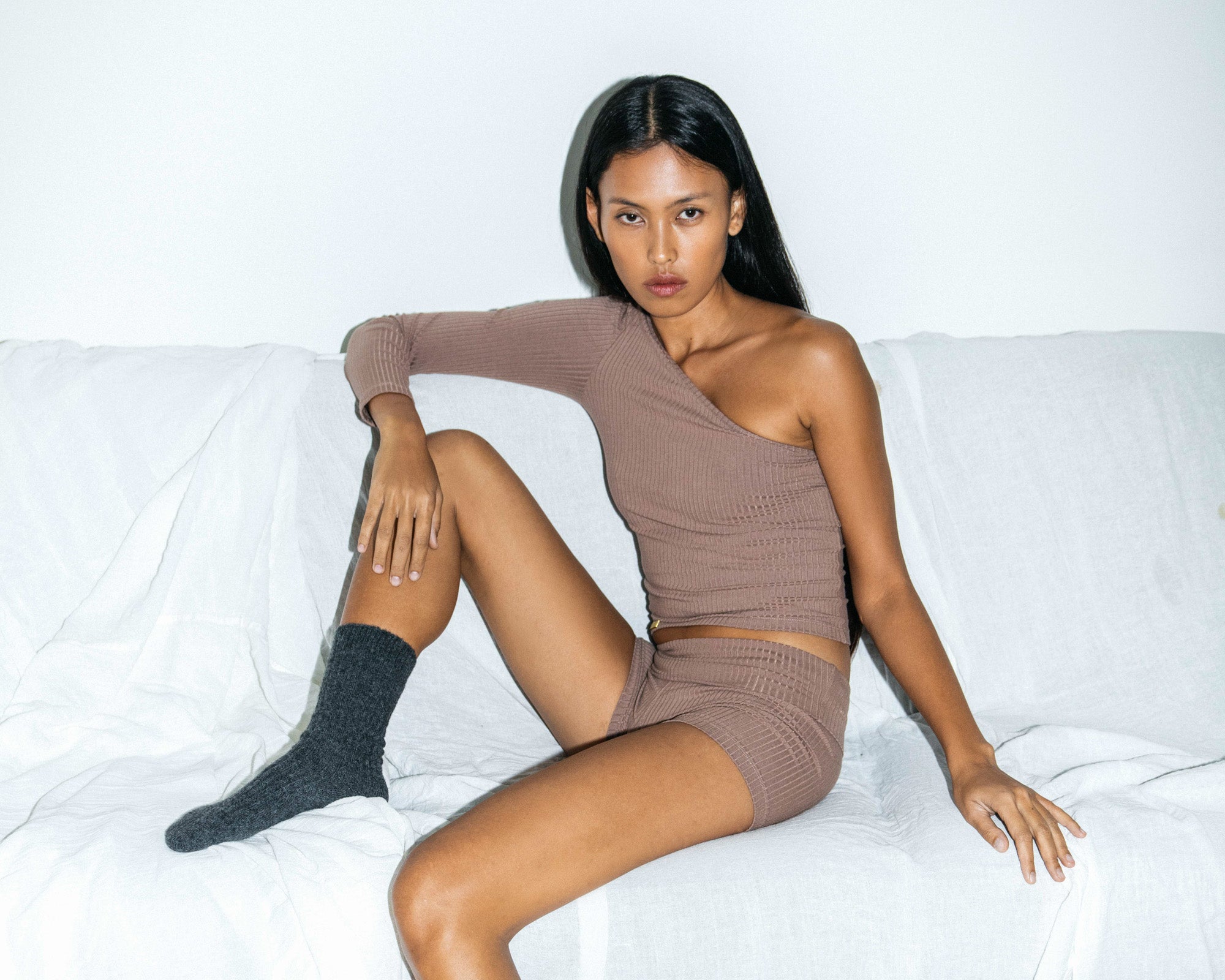OUR FABRICS
We have carefully considered each part of our production process, from the materials used, to the method of manufacture. We regularly visit our factory to witness the whole process from the dying, washing and finally the fabric being sewn into our garments. We only work with responsibly sourced fabrics. Our commitment to sustainability is a continuous development and we are always looking for new ways to better our products and our business as a whole.
OEKO-TEX® ORGANIC BAMBOO
OEKO-TEX® STANDARD 100 is a label for textiles tested for harmful substances. It sets the benchmark for textile safety, from yarn to finished product. Every Item bearing the STANDARD 100 label is certified as having passed safety tests for presence of harmful substances.
Bamboo is fast-growing, requires little water only and no pesticides at all. It self-regenerates from its own roots, so it doesn’t need to be replanted. Bamboo is a wonderful, comfortable, breathable and lightweight option for active and underwear. The bamboo fibers we use are certified by OEKO-TEXⓇ which means the fabric is free from harmful chemicals and residues.
Bamboo is, due to its softness, stretchiness and flexibility, prone to loose a little bit of shape after use, however, will come back to its original shape once it has been washed.
The use of Bamboo for the textile industry brings high promises, however, it is still subject to optimisation along the process, in particular when it comes to the harvest of sustainably grown bamboo and to manufacturing the raw fabric, in particular avoiding the release of harmful chemicals used in production into waterways.
The soft Bamboo fabric is won through what is known as the Viscose process which involves dissolving cellulose material (Bamboo) in a chemical solution to produce a pulpy viscous substance. This is then pushed through a spinneret, and “spun” into the fibres that can then be made into threads and fabrics. Making bamboo soft involves the use of chemicals. The high demand for bamboo at this stage has initiated a great deal of improvement in chemical management and waste treatment.
Bamboo fabric has potential—it is much less costly to produce than cotton, avoids the extensive use of pesticides in non-organic cotton production, and production is not as chemically intensive as polyester. We are staying on top of improved practices when it comes to the use of Bamboo in our products.
LENZING™ ECOVERO™ Contour Collection + Rib Collection
The responsible production process of LENZING™ ECOVERO™ fibers uses at least 50% less water and emits at least 50% less CO2 compared to generic viscose fibers, thereby saving precious resources for future generations. The fibers are made from wood, a natural and renewable raw material from responsibly managed forests. The wood taken from nature is sourced from controlled or certified origins meeting FSC® or PEFC standards.
Biodegradable & Compostable / LENZING™ Viscose standard fibers are certified as biodegradable in soil, freshwater and marine environments, and compostable under home and industrial conditions.
EU Ecolabel / LENZING™ ECOVERO™ fibers are certified with the EU Ecolabel for textile products (license no. AT/016/001), a label of environmental excellence that is awarded to products and services meeting high environmental standards throughout their life-cycle: form raw material extraction, to production, distribution and disposal.
RAMIE
Ramie is a smooth and quick drying natural fiber first used in ancient Egyptian times, and in Europe during the Middle Ages - so it’s safe to say it has stood the test of time. We love Ramie because of its lustrous appearance and ever so soft touch. The fibre is very fine, silk-like and has natural crinkle to it which provides an effortless look. Ramie is 100% biodegradable and only becomes smoother, better and more lovable with each wash.





